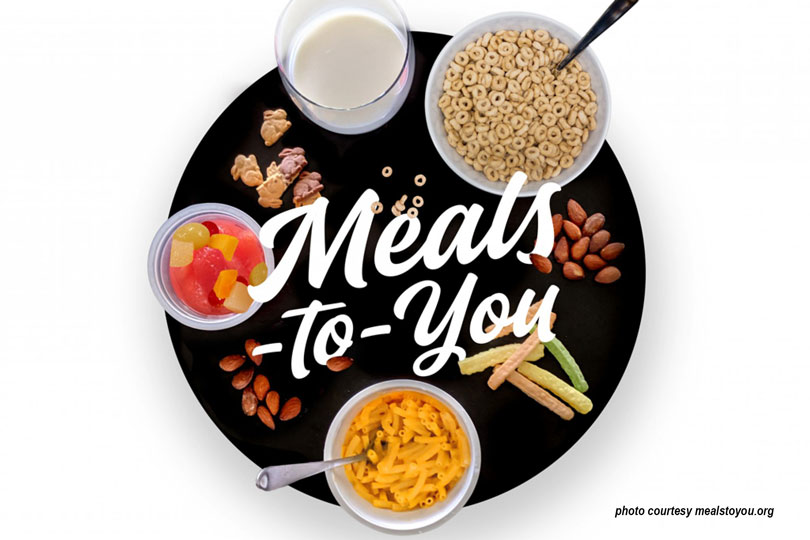By Jennifer Dorsett
Field Editor
A partnership between the U.S. Department of Agriculture (USDA), Baylor University Collaborative on Hunger and Poverty, McLane Global and PepsiCo will increase the number of weekly meals they deliver to rural children impacted by COVID-19-related school closures.
The collaborative program, Meals to You, was successfully trialed in summer 2019 to deliver shelf-stable, individually packaged and child-friendly foods to eligible students unreached by traditional summer food programs. But after the COVID-19 pandemic forced schools to close their doors, Meals to You was adapted to fit the new situation families and children found themselves facing.
Meals to You initially aimed to deliver about one million meals per week to a limited number of rural schools closed due to COVID-19. The goal was quickly surpassed, however, and nearly 3.5 million meals have been shipped to the homes of children across 12 states: Alabama, Alaska, Arkansas, Kansas, Louisiana, Maine, Mississippi, Missouri, Oklahoma, Tennessee, Texas and Virginia.
USDA noted 23 additional states and Puerto Rico have requested to participate in Meals to You, so the program is preparing to serve five million meals per week to help meet growing demand.
“Uncertain and difficult times call for unprecedented actions and big picture ideas. Rural children affected by school closures faced food insecurity, but these great American groups and companies stepped up to help their fellow countrymen by delivering boxes of food across the country,” U.S. Secretary of Agriculture Sonny Perdue said in a statement. “This program has been so successful and faced such high demand that we are expanding to five million meals a week. Our partnership to feed kids embodies President Trump’s whole of America approach to tackling the coronavirus by utilizing the best of America—private sector ingenuity with public sector backing.”
And USDA is hearing directly from families about how much Meals to You means to them.
“I just wanted to say an unmeasurable amount of thank yous are being sent to you and the entire teams it took to coordinate, prepare and distribute these meals across my community,” a mother from rural Texas wrote. “I sincerely appreciate the incredible amount of effort it took for this to happen and I’m indebted to you and your teams! Thank you for making a difference in my household without even knowing who I am (we’re a family of five with one parent working with reduced wages).”
Research made available through Baylor’s Hunger Data Lab showed about 11 percent of households in the U.S. were food insecure in 2018, a number researchers say has likely risen during the pandemic.
To help children who are facing food insecurity, Meals to You boxes contain 20 nutritious meals—10 breakfasts and 10 lunches.
Foods meet USDA’s Summer Food Service Program meal standards and may include items like milk, fruit cups, cereal, whole-grain crackers and chili. All foods are easy for children to prepare without assistance. Boxes are delivered directly to children’s doorsteps via postal or delivery services to help rural families who may not have access to food distribution centers.
“We are grateful to be a part of an innovative team made up of both the public and private sectors motivated by the strong desire to help our neighbors in need,” Jeremy Everett, executive director of the Baylor University Collaborative on Hunger and Poverty, said. “We hope that the boxes of food will nourish children and communicate to their families that they are not in this tough circumstance alone.”
McLane Global, a Texas-based food and logistics company, has long offered a variety of services to food banks and hunger relief agencies through McLane Hunger Solutions. Chairman Denton McLane said the company is dedicated to ensuring kids don’t go hungry during this difficult time.
“We’ve shifted to a 24-hour production schedule across all locations to meet the demand and couldn’t be prouder of our partners, employees and the people on the ground working to ensure these meals get to those who need it most,” McLane said.
The Baylor University Collaborative on Hunger and Poverty continues to work closely with states interested in the initiative. Program representatives said it can now add more states to the program to meet continued demand.
To learn more about Baylor’s program, visit https://www.baylor.edu/hungerandpoverty.
For more information on Meals to You, visit https://mealstoyou.org.

